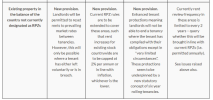Brendan Burgess
Founder
- Messages
- 55,509
Irish Government to introduce package of changes affecting private rented sector | A&L Goodbody LLP
A&L Goodbody LLP, a leading Irish corporate law firm providing expert Irish legal advice to multinationals, financial institutions, and government bodies.

